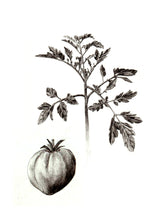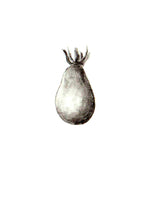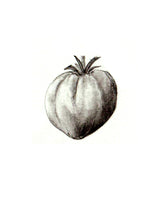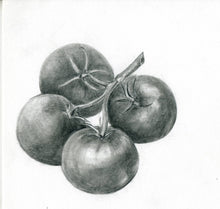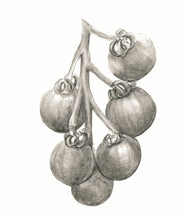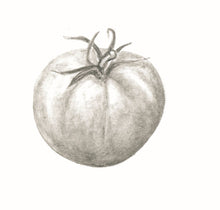
Scientific name: Solanum lycopersicum
Common name: Tomato
General description: It originated in South America, from the region that goes from the north of Chile to Colombia, cultivated by the Inca civilization. It arrived in Europe in the 16th century, initially as an ornamental fruit, and only in the 19th century, it started to be produced for food purposes.
From the hundreds of existing varieties, we have seeds of:
- Red Tomato 'Ox Heart' is a variety that has large heart-shaped fruits and few seeds. It is a late-harvest variety.
- Orange Tomato 'Ox Heart' is a variety that has large heart-shaped fruits, firm flesh, and an orange color, with few seeds.
- 'Ace 55 VF' tomato is a variety that has tough fruits with thick skin and red color, abundant production with medium or late season ripening.
- Yellow submarine' tomato is a variety that has drop-shaped, yellow fruits with high production capacity. It adapts well to colder regions.
- 'Black cherry' tomato is a variety that has cherry-like fruits, dark red. It has very vigorous growth and produces well in years of high heat.
- 'Pink' tomato is a variety that has large, smooth-skinned, light red fruits.
- 'Cherry' tomato is a red-colored variety whose size is smaller, with a sweeter taste, and produces long bunches.
- 'Antigo' tomato is a traditional variety originating from Ladoeiro, in Portugal. This seed was selected for more than 25 years by a farmer.
Nutritional facts: Rich in lycopene, A and B complex vitamins, and important minerals like phosphorus and potassium, as well as folic acid, calcium, and fructose. Incorporate a lot of water and is low in calories.
GROWING CONDITIONS
Climate: Preferably warm and dry with some variation in night temperature, with plenty of light and direct sunshine at least some hours of the day.
Soil: The crop adapts well to soil with a texture ranging from sandy loam to clay loam, provided it is well drained to avoid root rot. Its pH should be between 6.0 and 7.0.
Irrigation: By drip irrigation is a good option for the crop as it provides water in a very localized way to the plants and avoids water on the leaves and fruits which can lead to the development of diseases.
Combinations: Aubergine, Broccoli, Peppers, Celery, Lettuce, Garlic, Leek, Onion, Chives, Carrot, Cauliflower, Asparagus, Spinach, Basil, Maize, Radish, Parsley, Sweet Grass, Lemongrass, Dill, Marigold, Borage, Tagetes, Mastic.
Sowing season: Between March and June.
Harvest time: From July to October.







